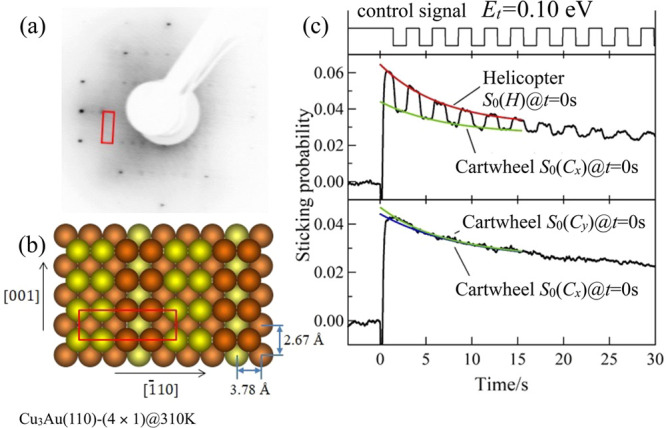Figure 2.

(Space quantized) O2 sticking probabilities
on Cu3Au(110)-(4 × 1). (a) LEED patterns for a clean
Cu3Au(110)-(4 × 1). (b) Schematic depiction of Cu3Au(110)-(4 × 1) (Cu, reddish balls; Au, yellowish balls).
(c)
Time evolution of the sticking probability for a space-quantized O2 impinging on Cu3Au(110)-(4 × 1) (at a surface
temperature of ca. 310 K) with translational energy Et = 0.10 eV. Time t =
0 corresponds to the time the beam shutter is opened to allow the
molecular beam to impinge on the surface. Following the control signal
shown (topmost right panel), the direction of the defining magnetic
field  can be modulated to alternately produce
helicopter-like (high signal) and cartwheel-like (low signal) rotating
O2 that impinge on Cu3Au(110)-(4 × 1).
Numerical fits to the corresponding sticking probability data points
(using exponentially decaying functions extrapolated to t = 0) also shown to guide the eye. The values at t = 0 correspond to the initial sticking probabilities S0(H), S0(Cx), and S0(Cy).
can be modulated to alternately produce
helicopter-like (high signal) and cartwheel-like (low signal) rotating
O2 that impinge on Cu3Au(110)-(4 × 1).
Numerical fits to the corresponding sticking probability data points
(using exponentially decaying functions extrapolated to t = 0) also shown to guide the eye. The values at t = 0 correspond to the initial sticking probabilities S0(H), S0(Cx), and S0(Cy).
